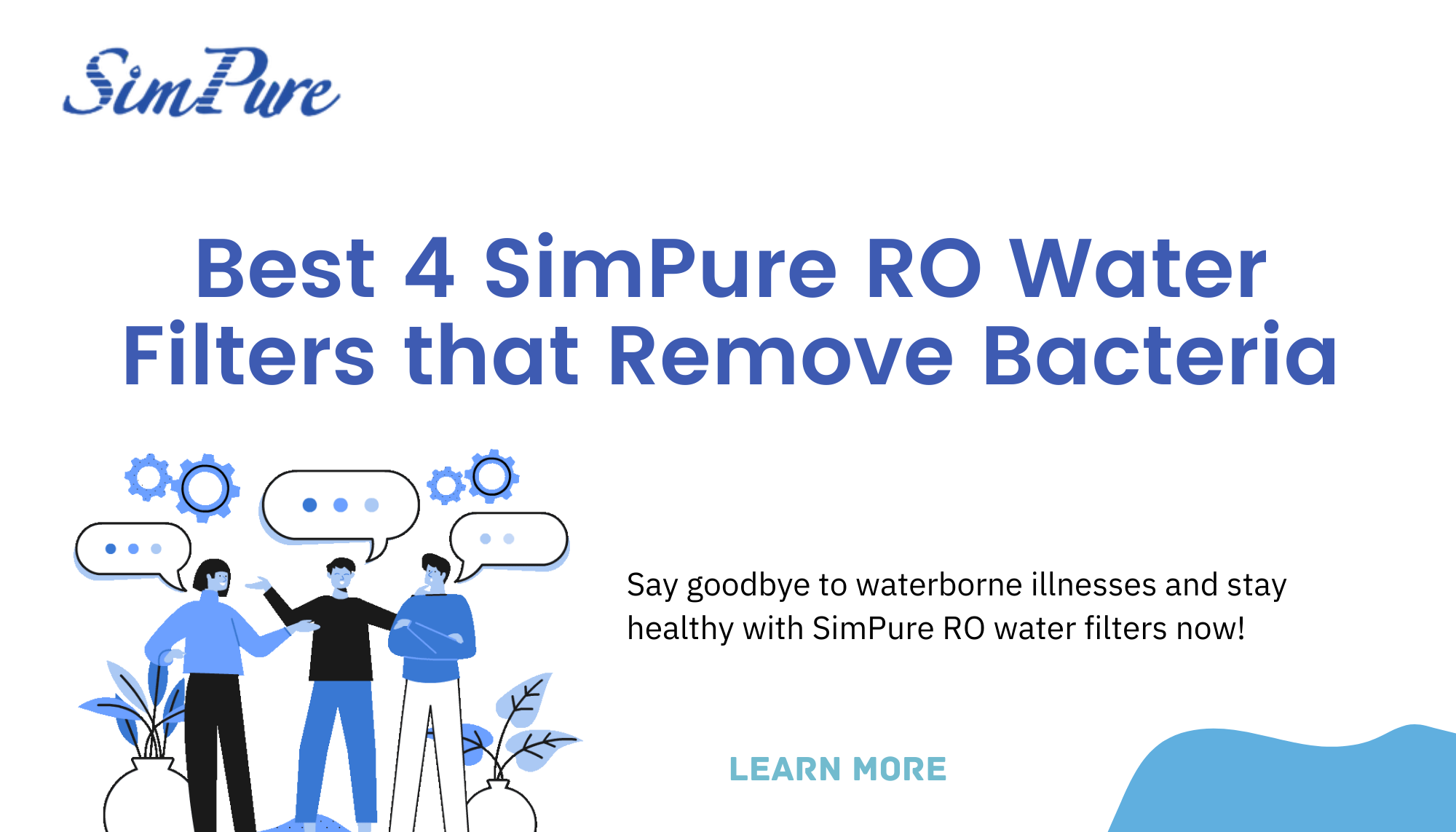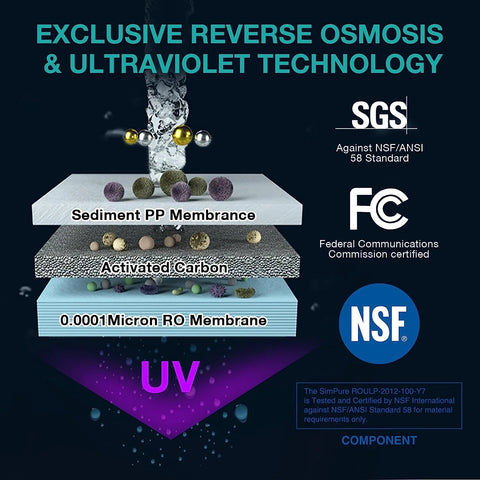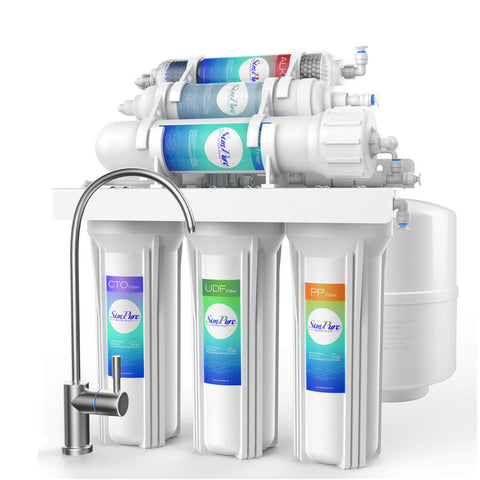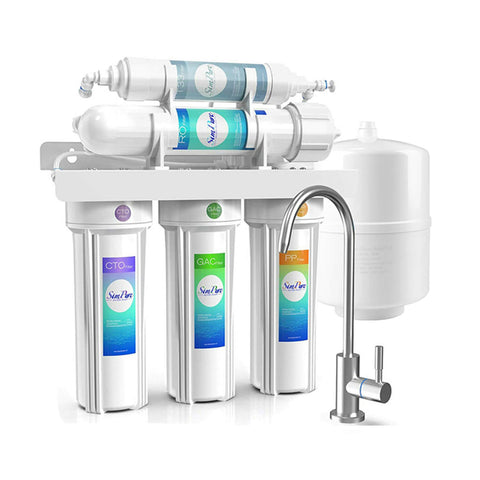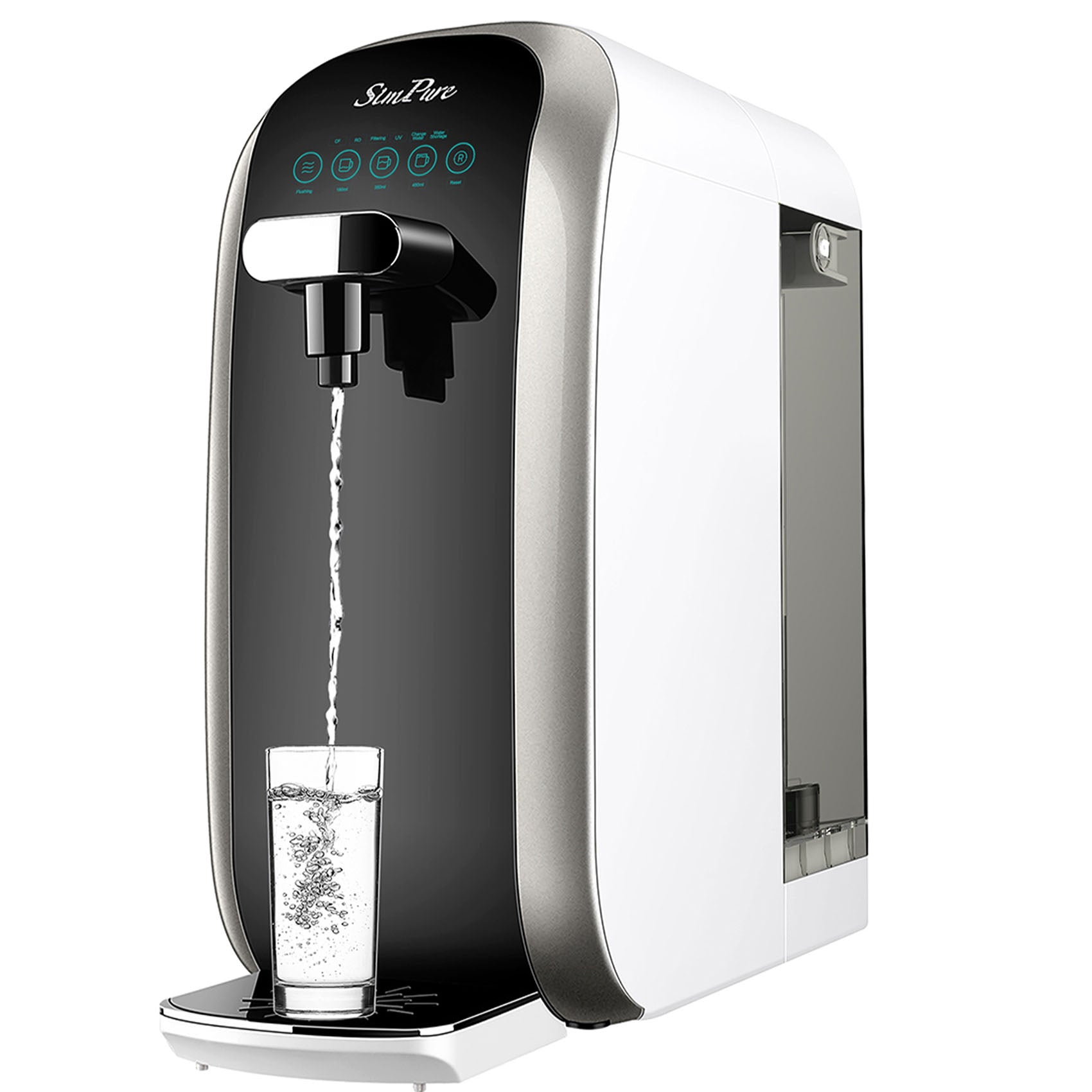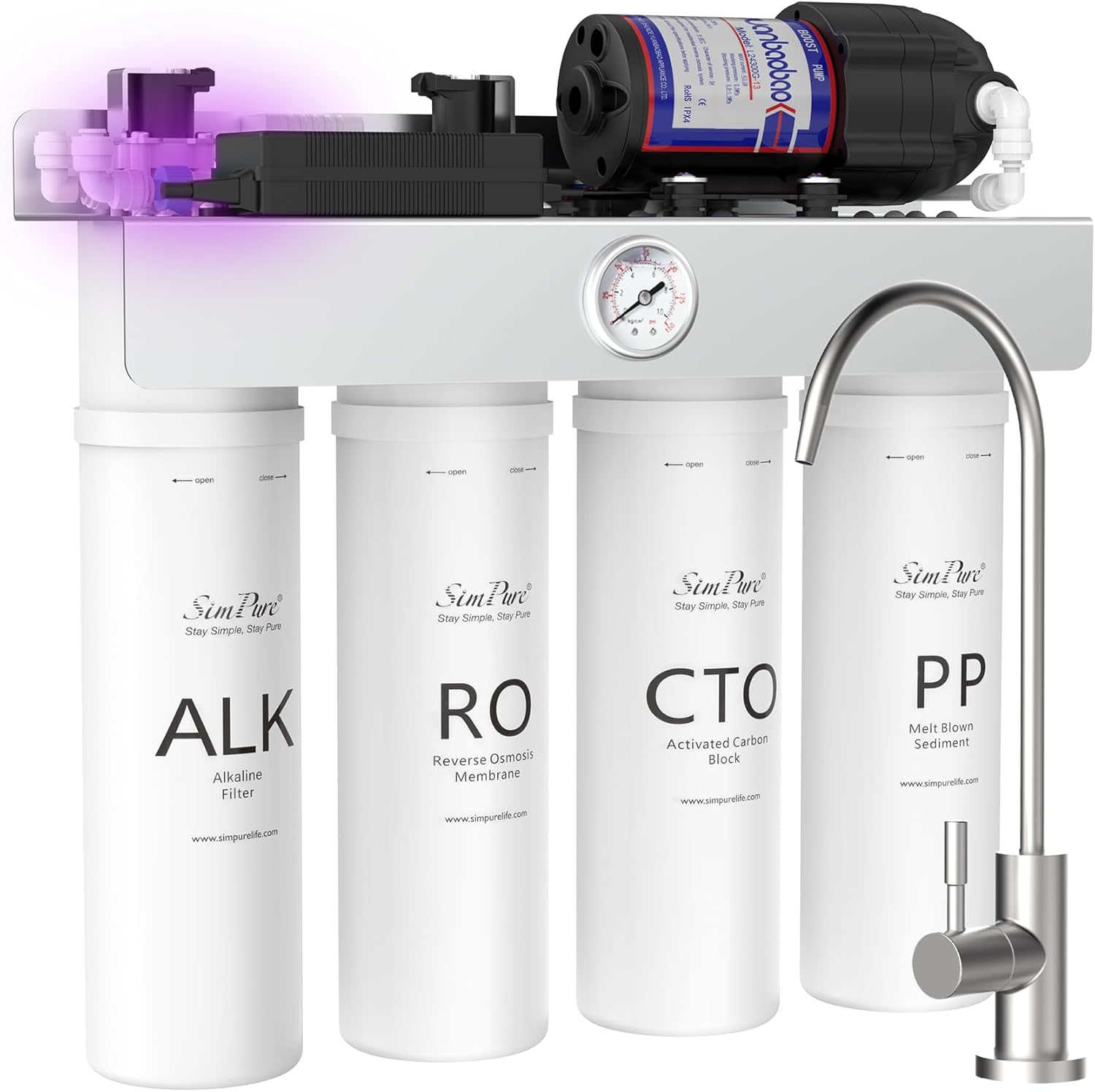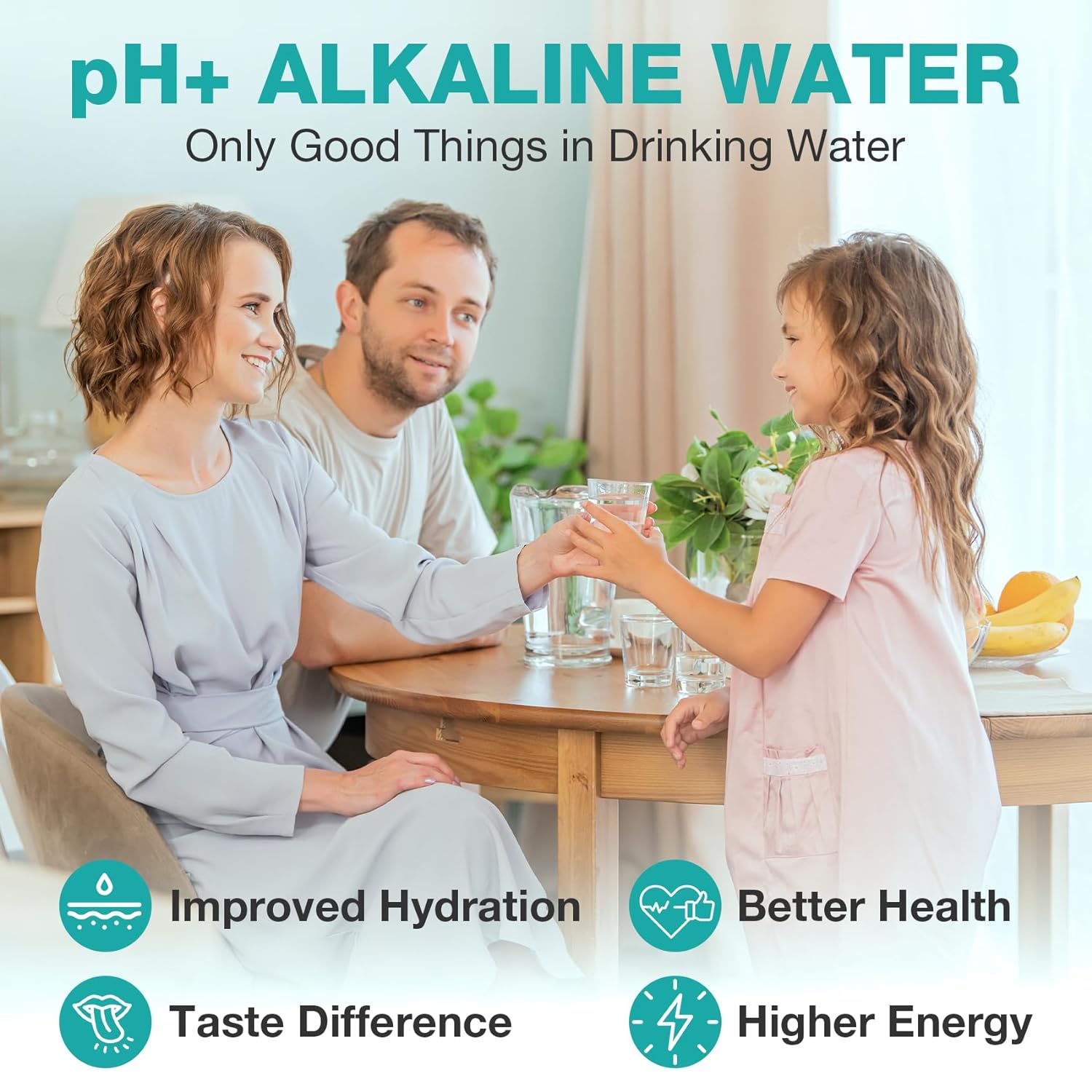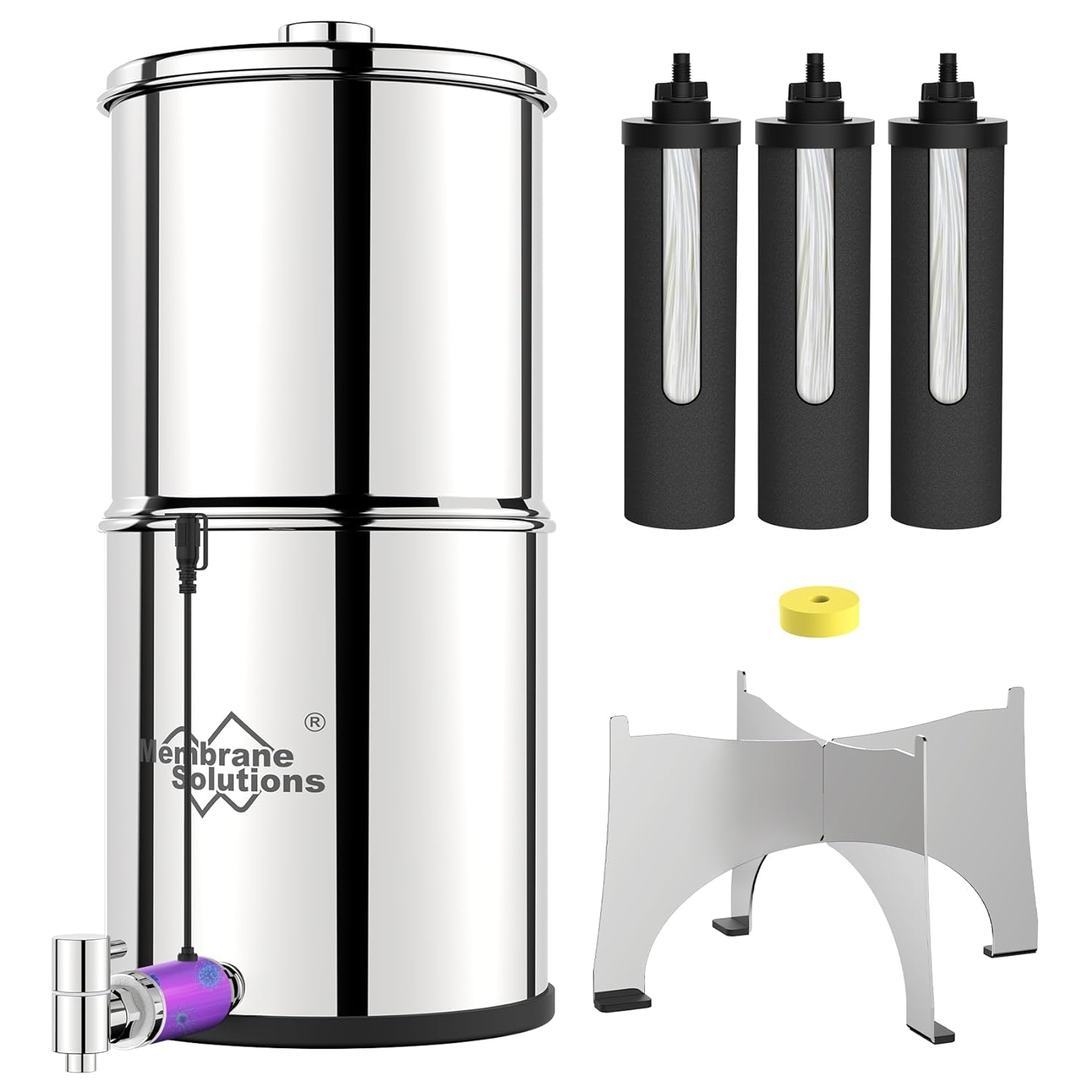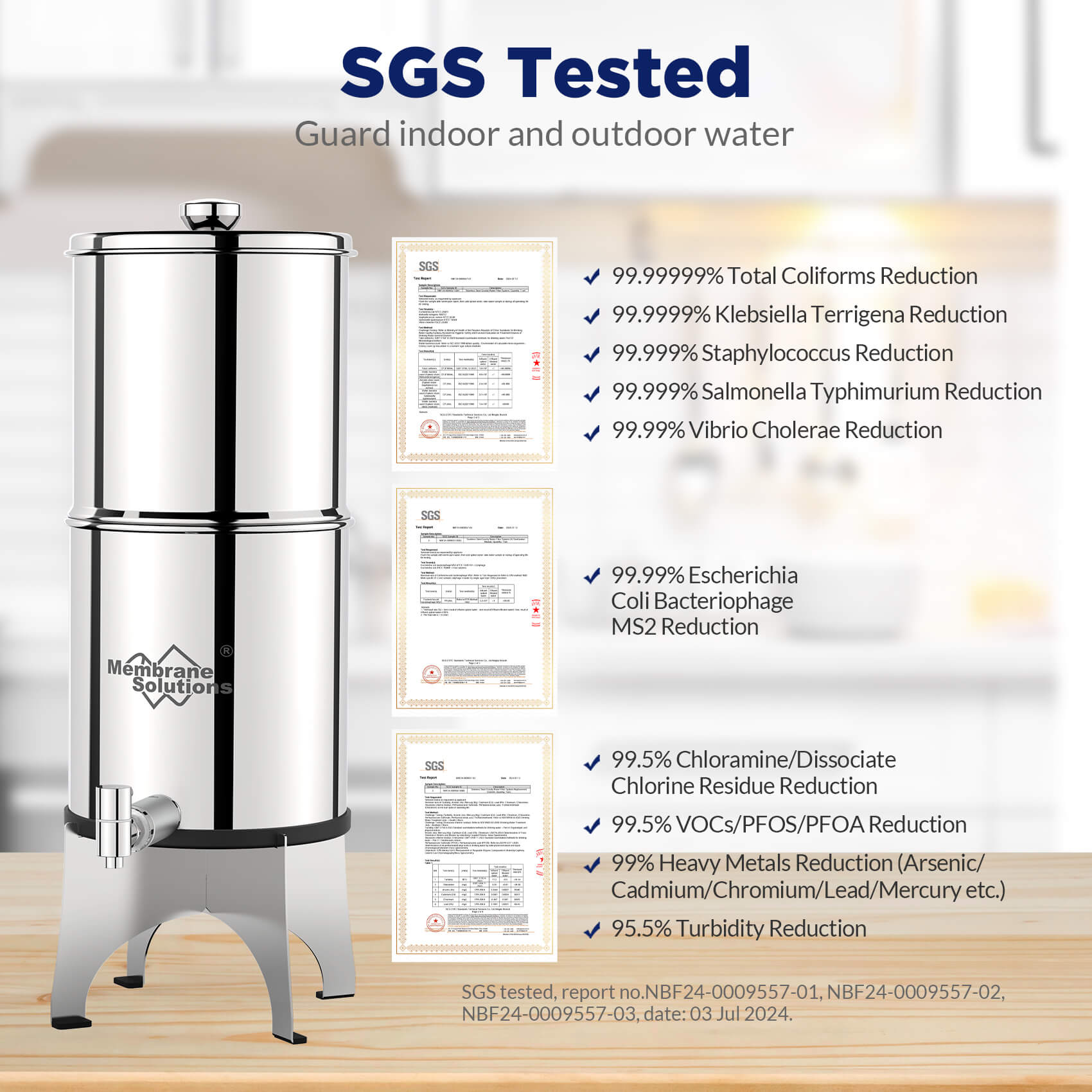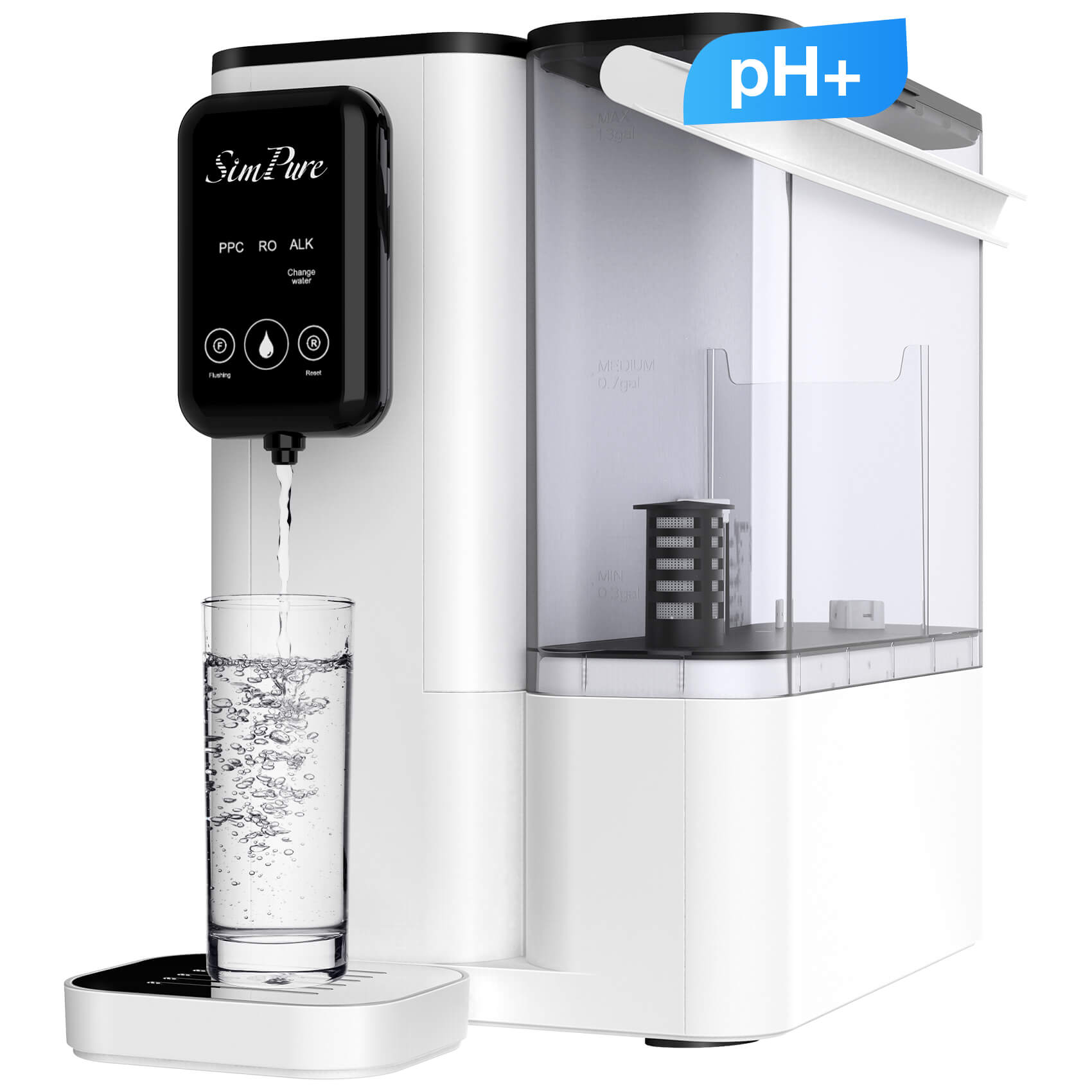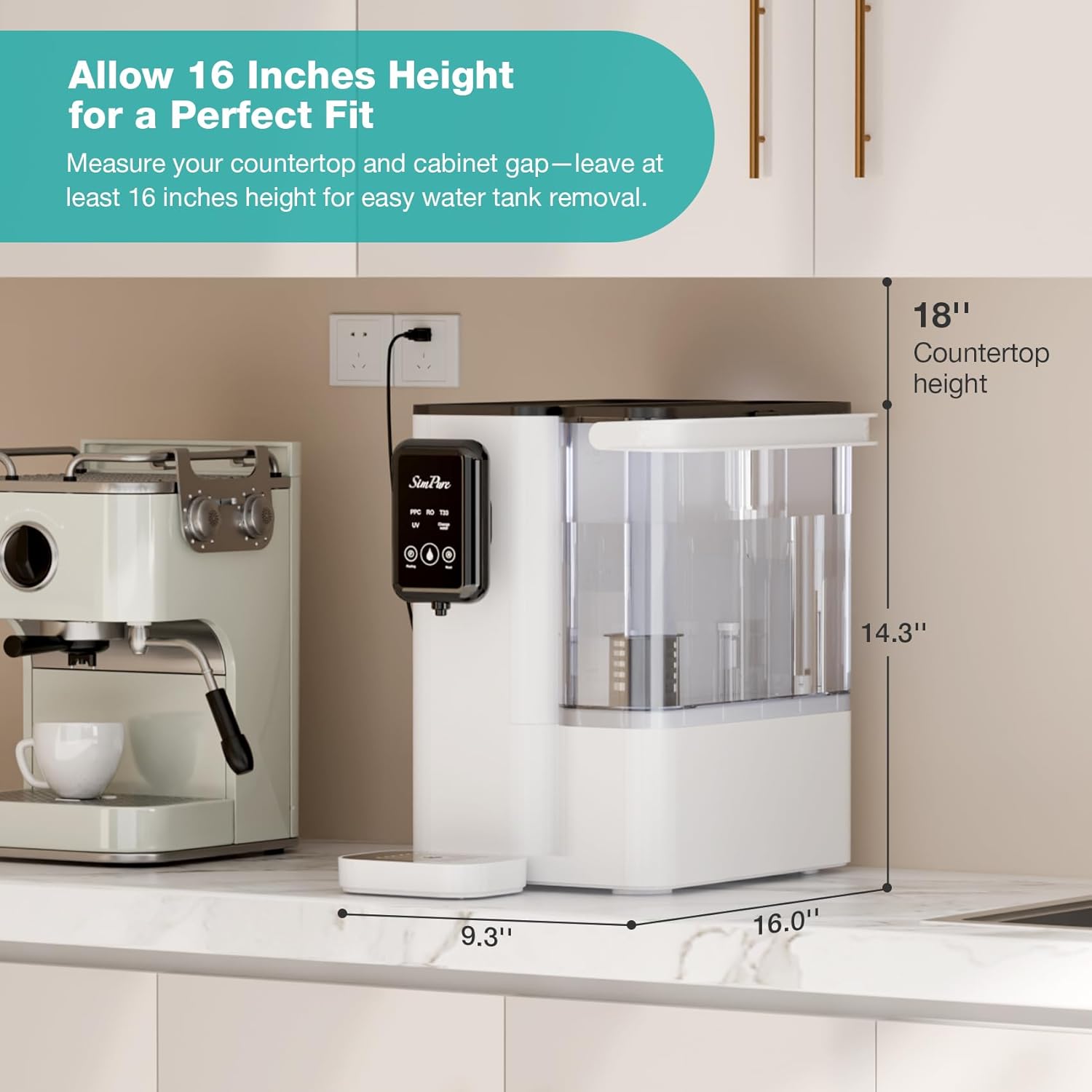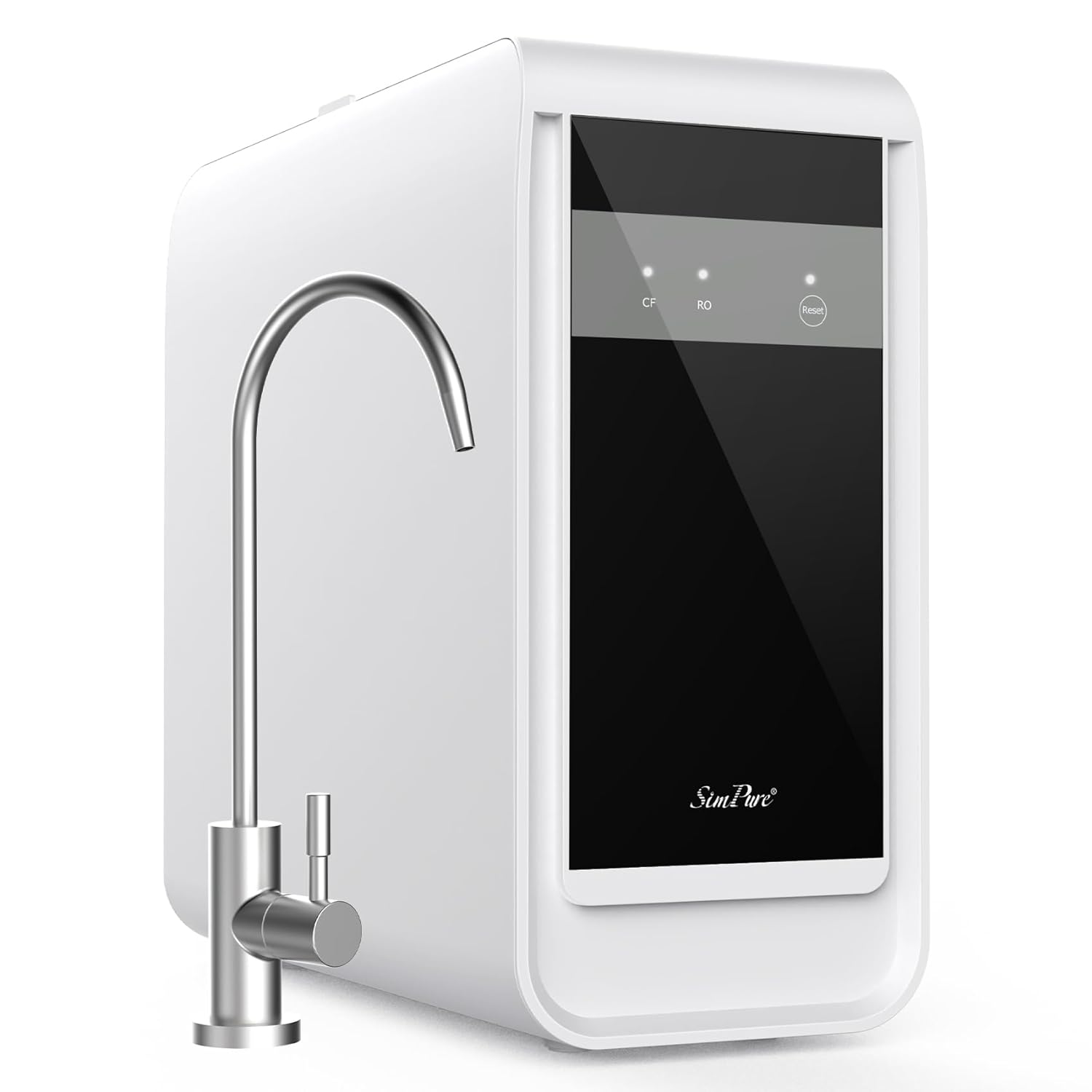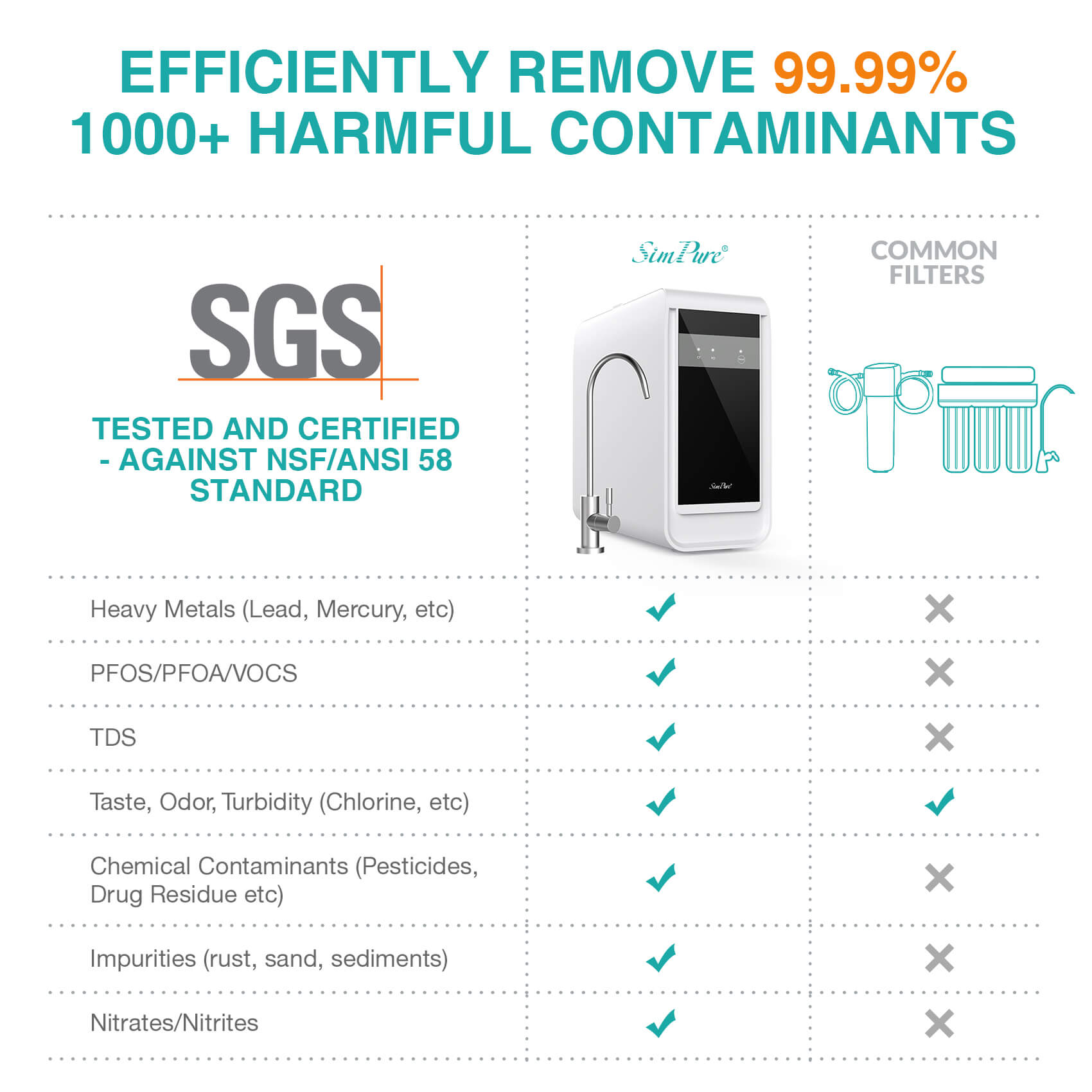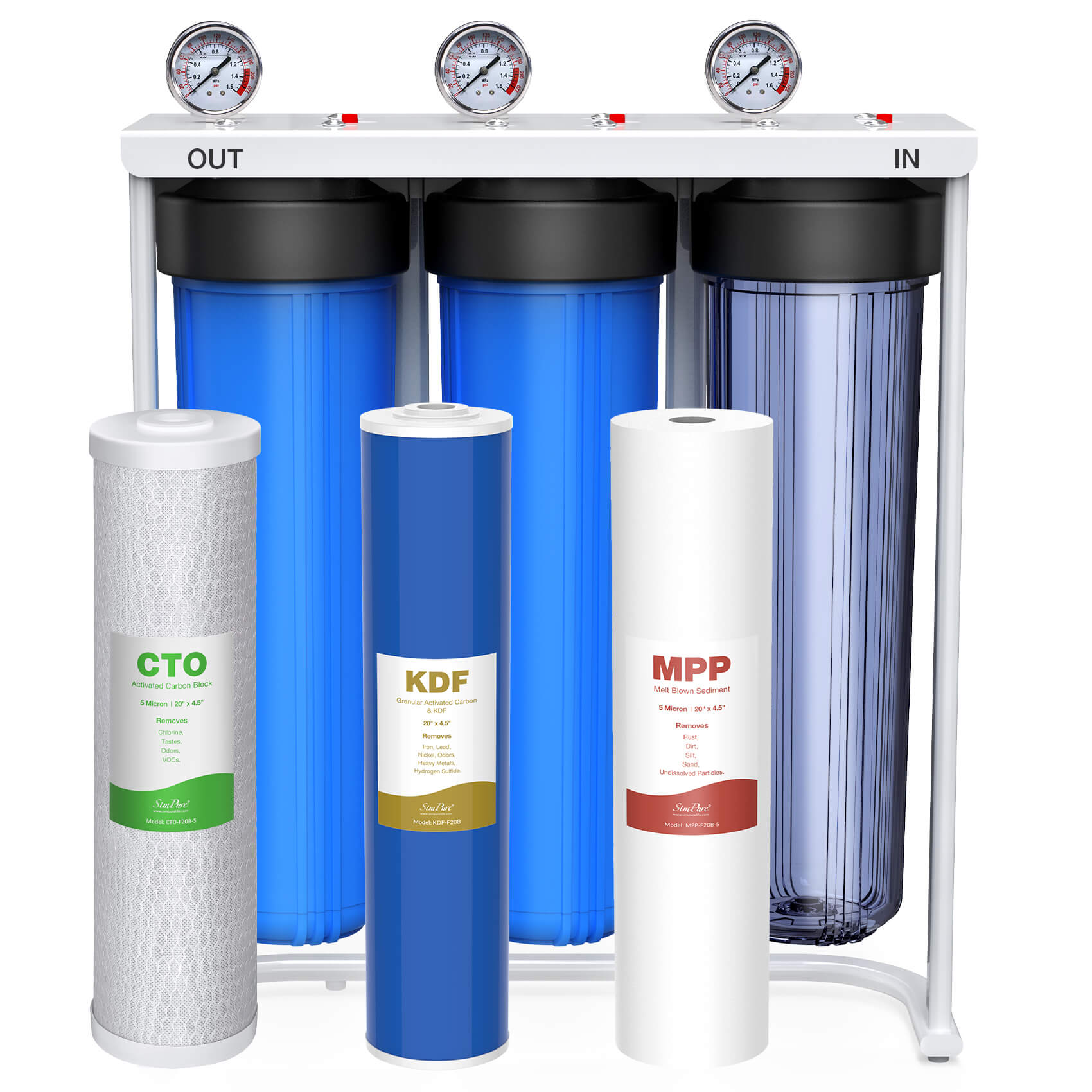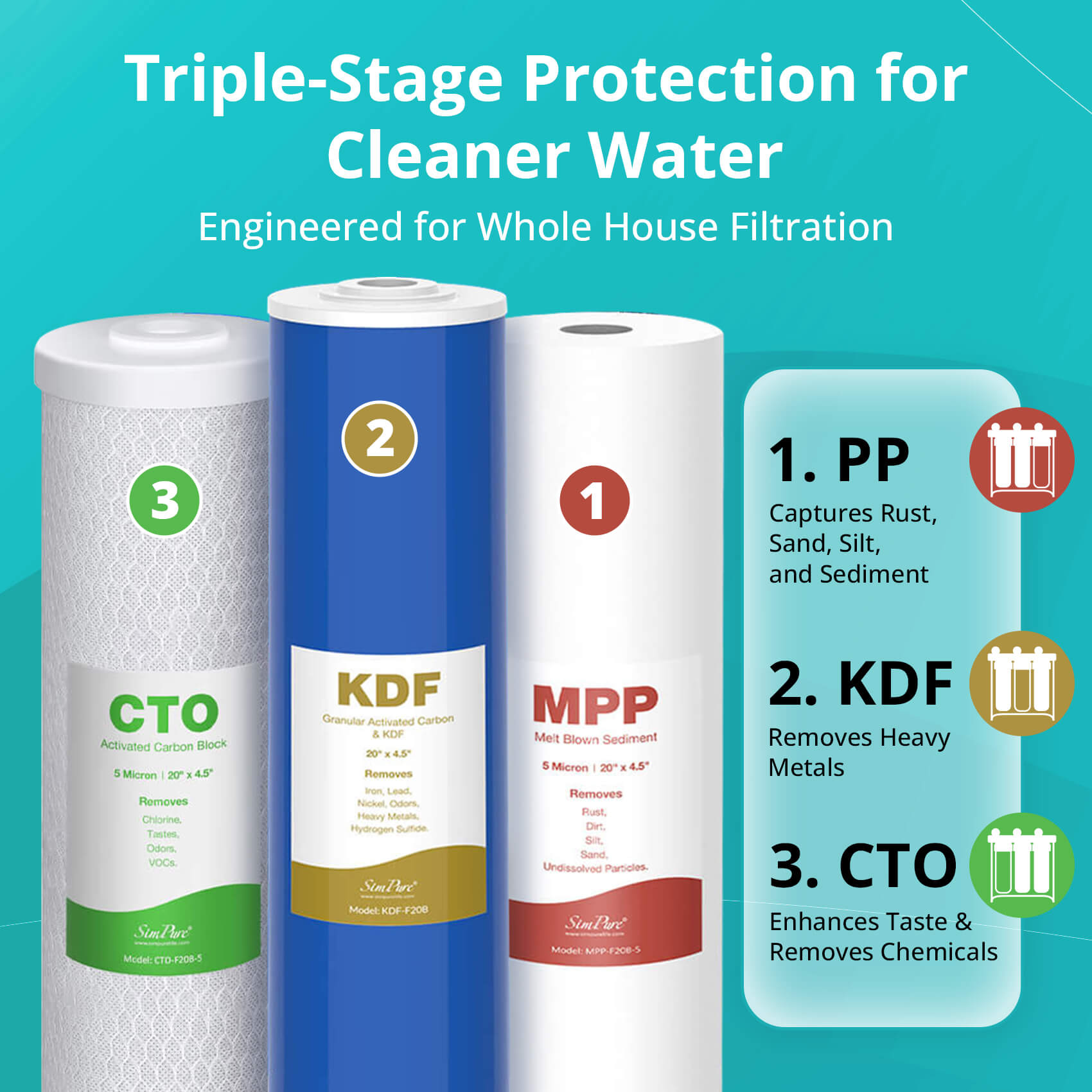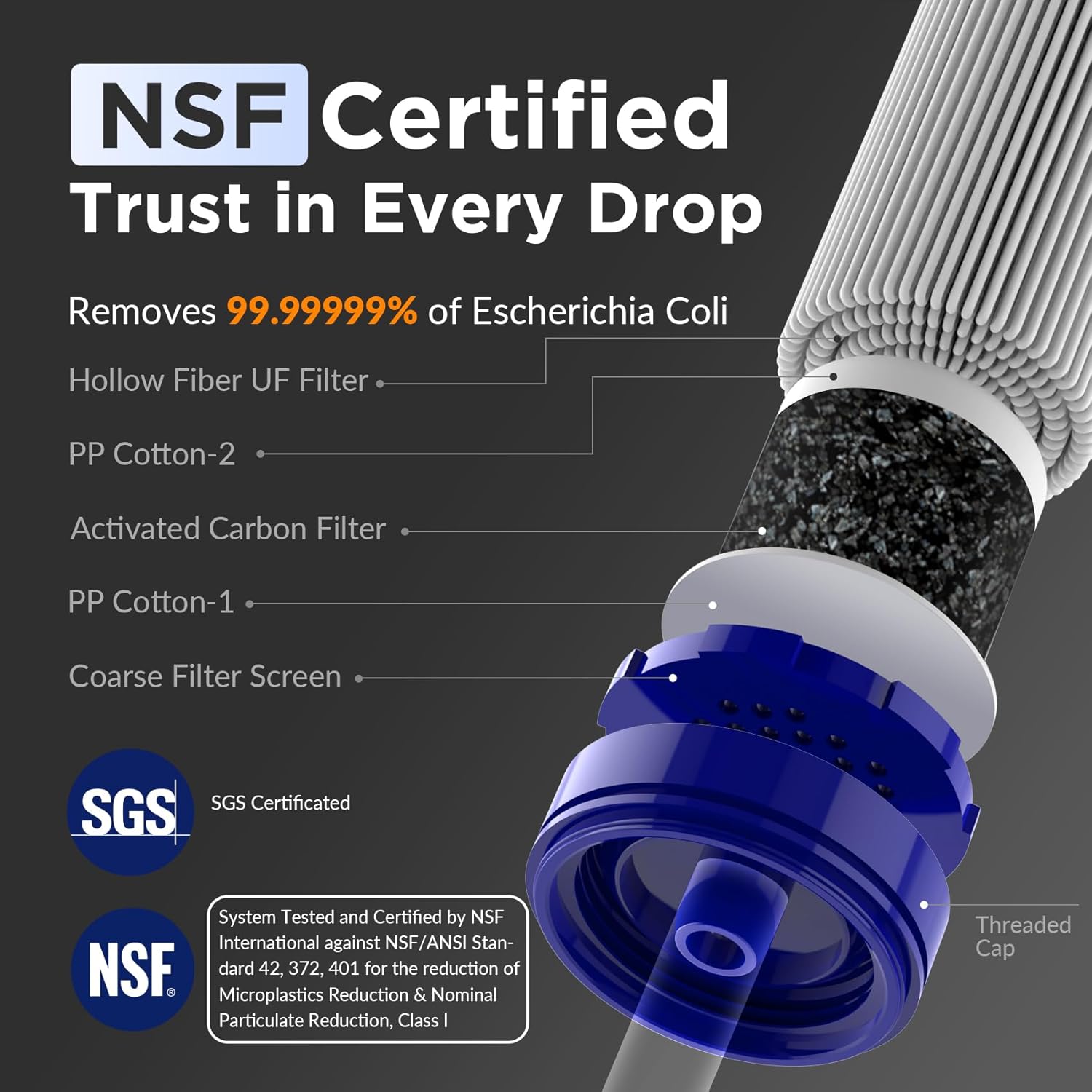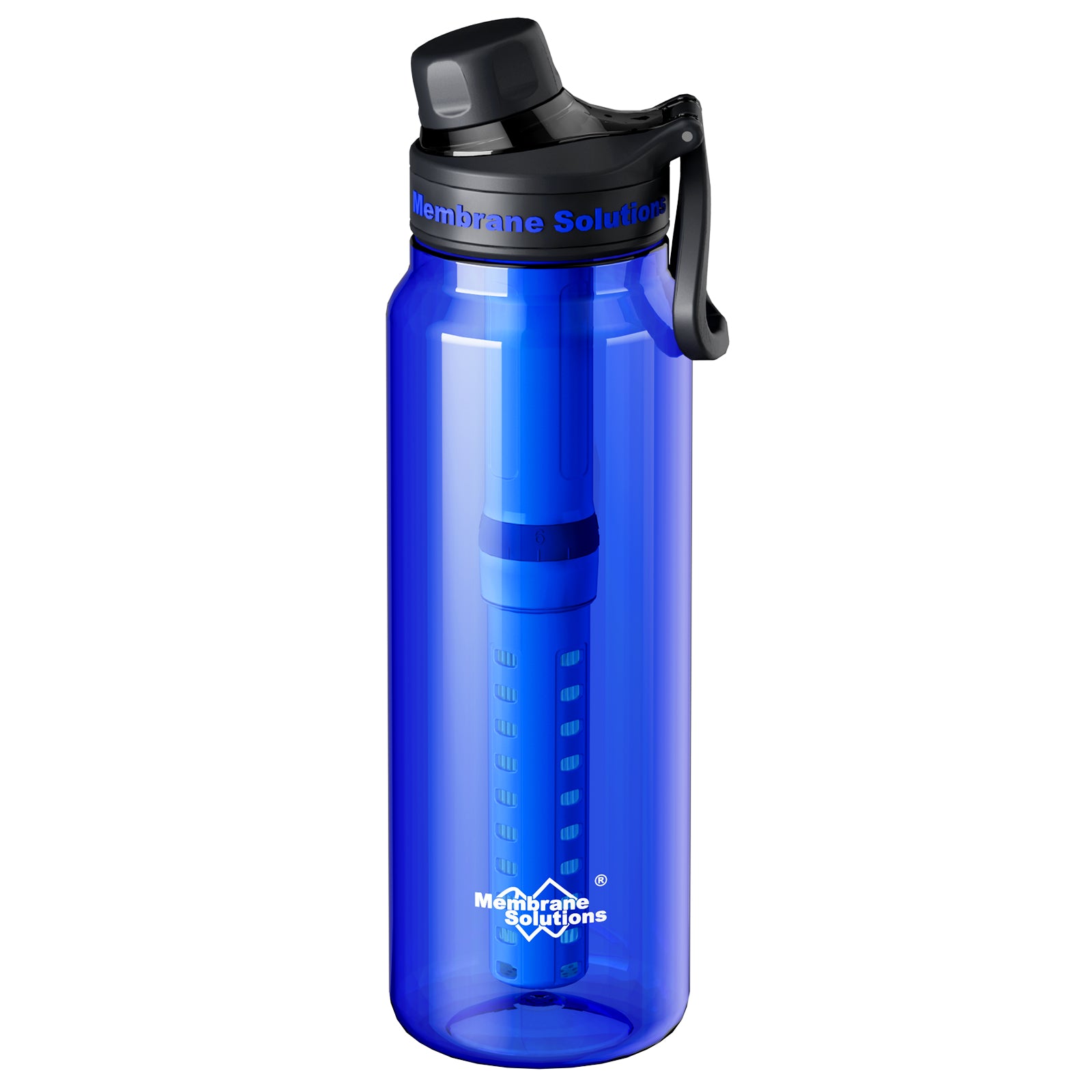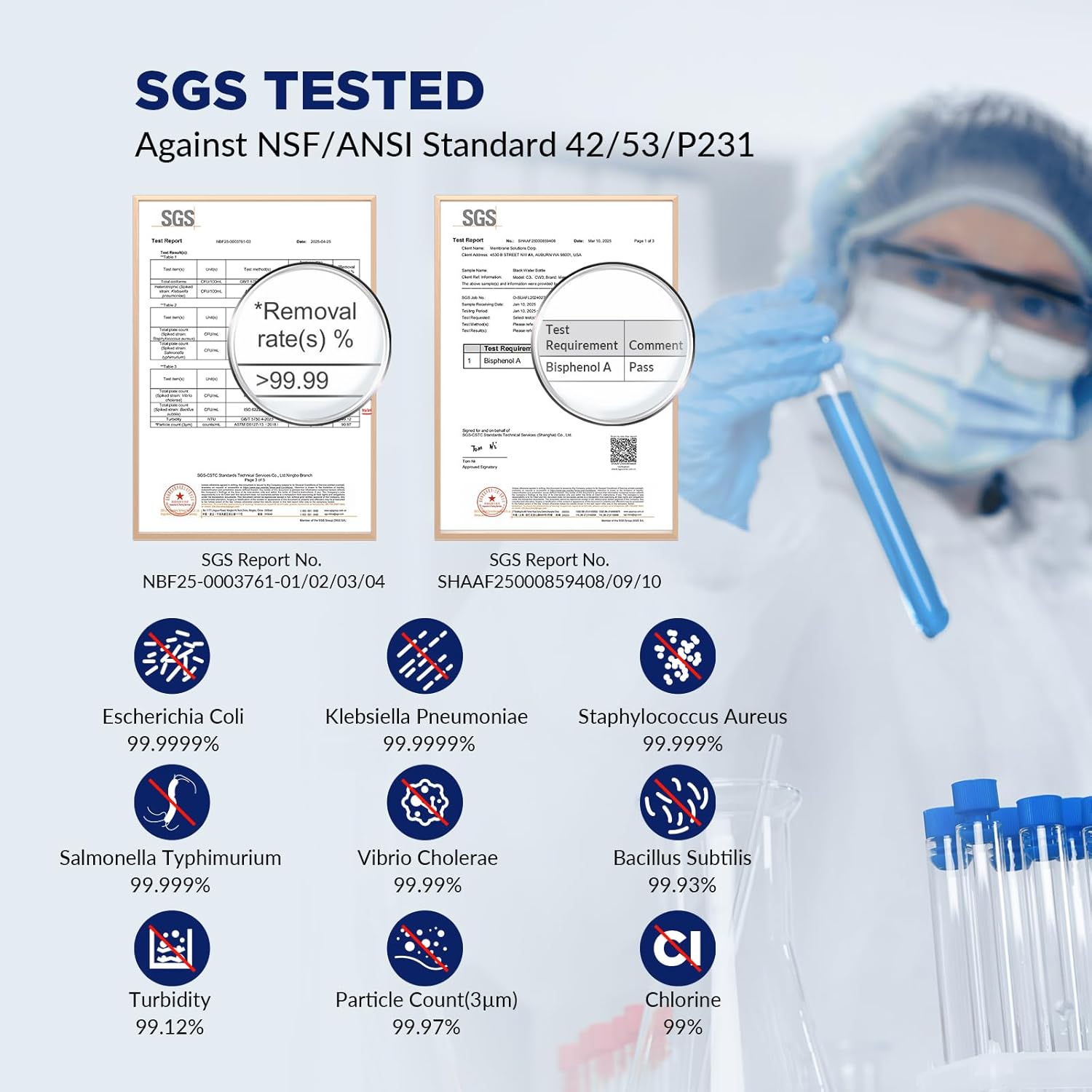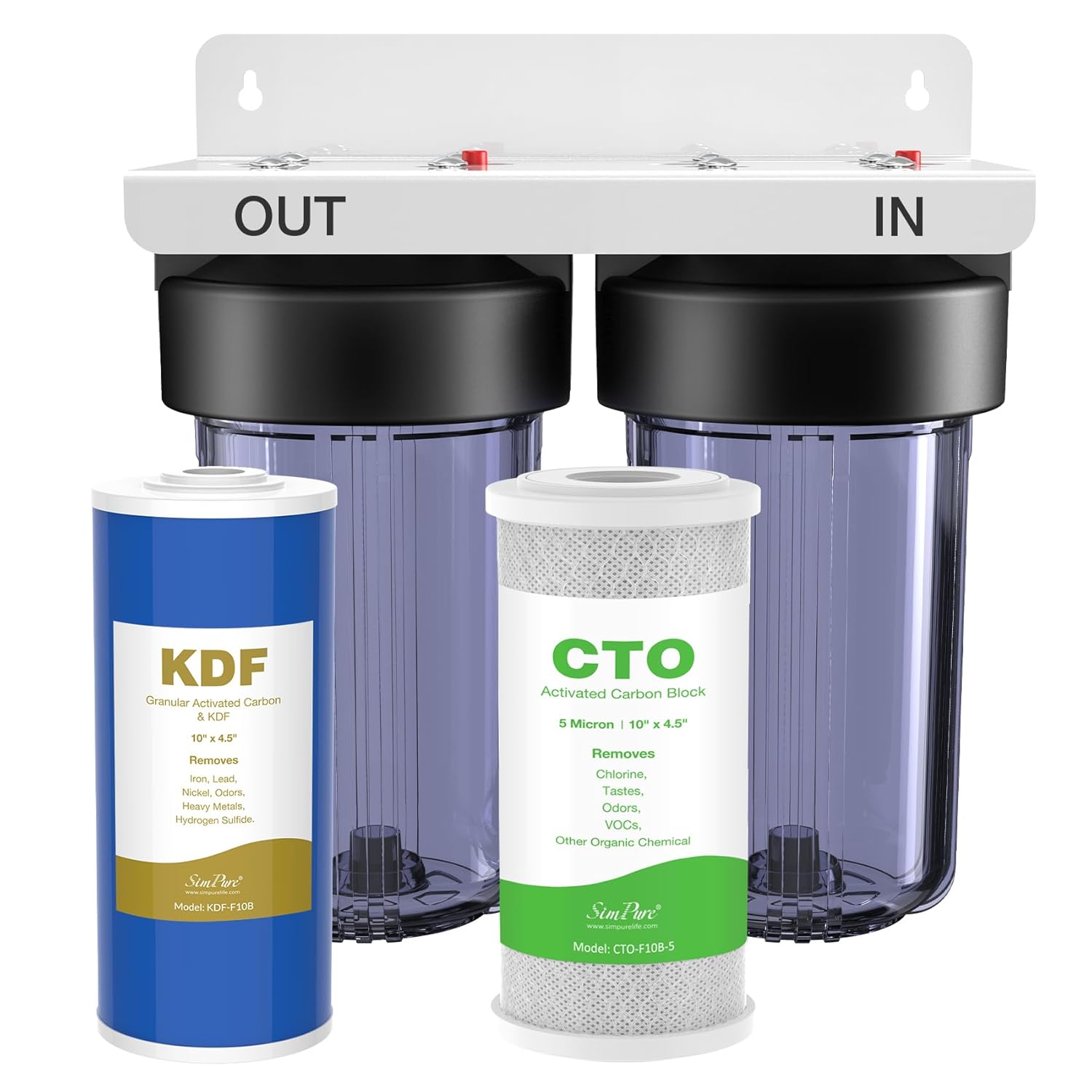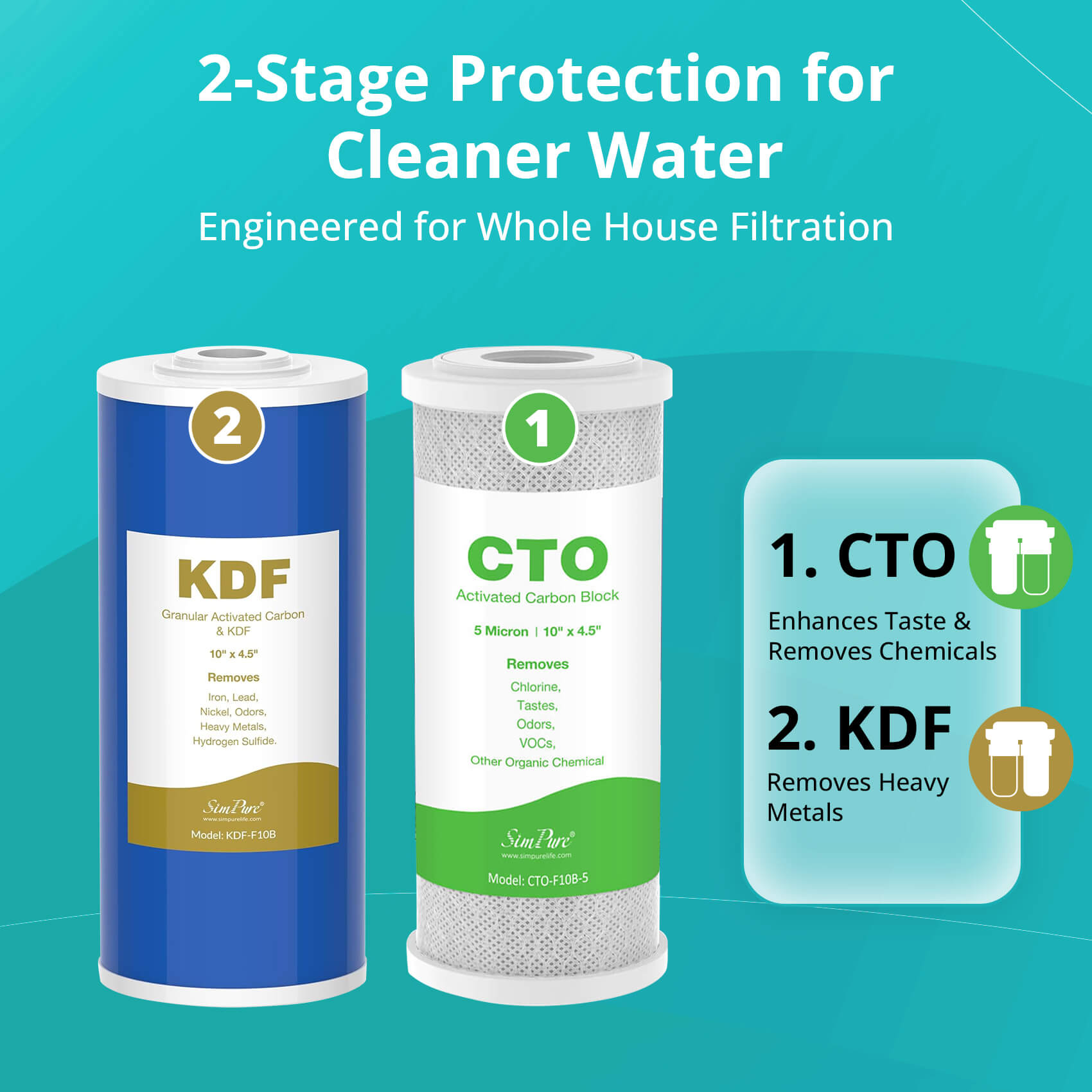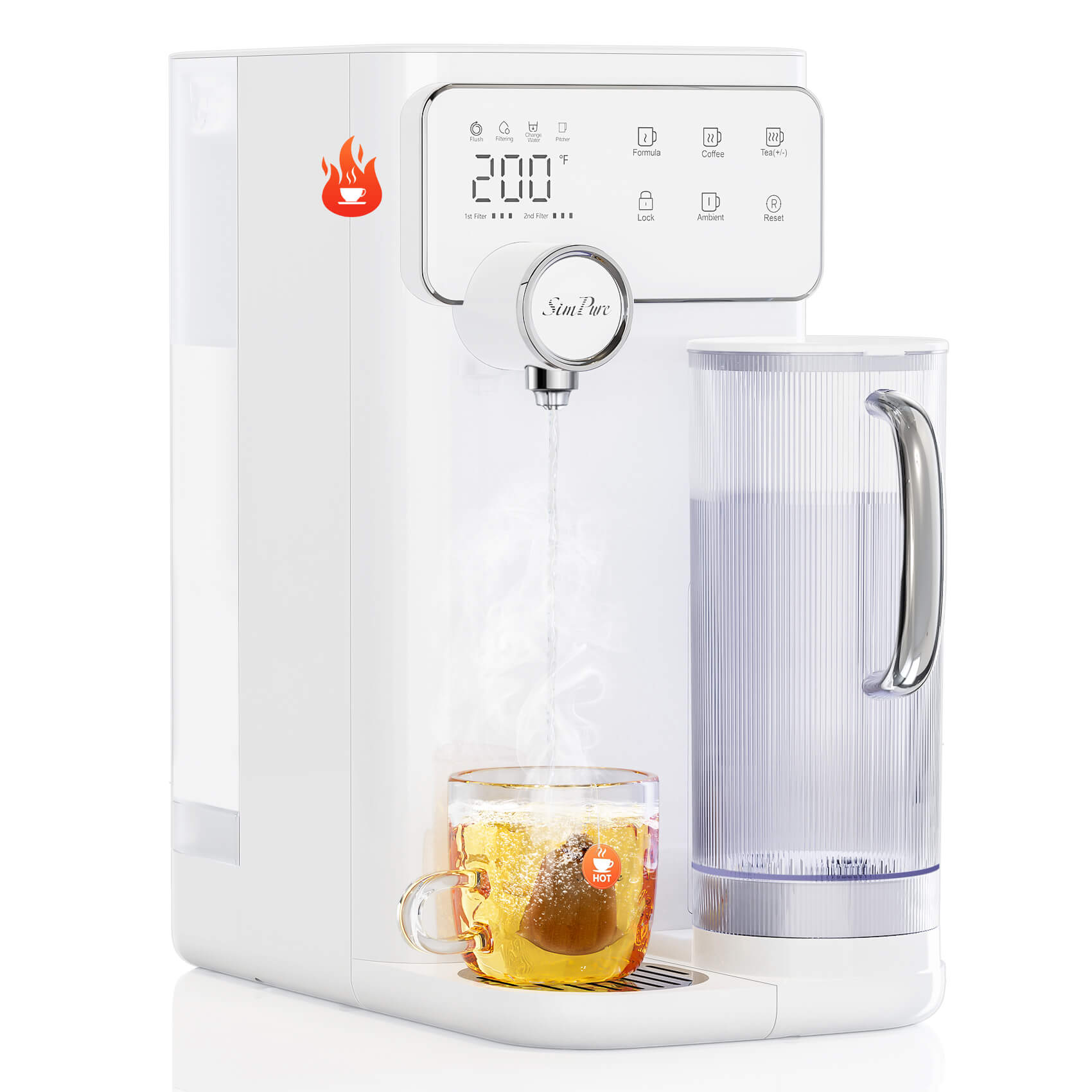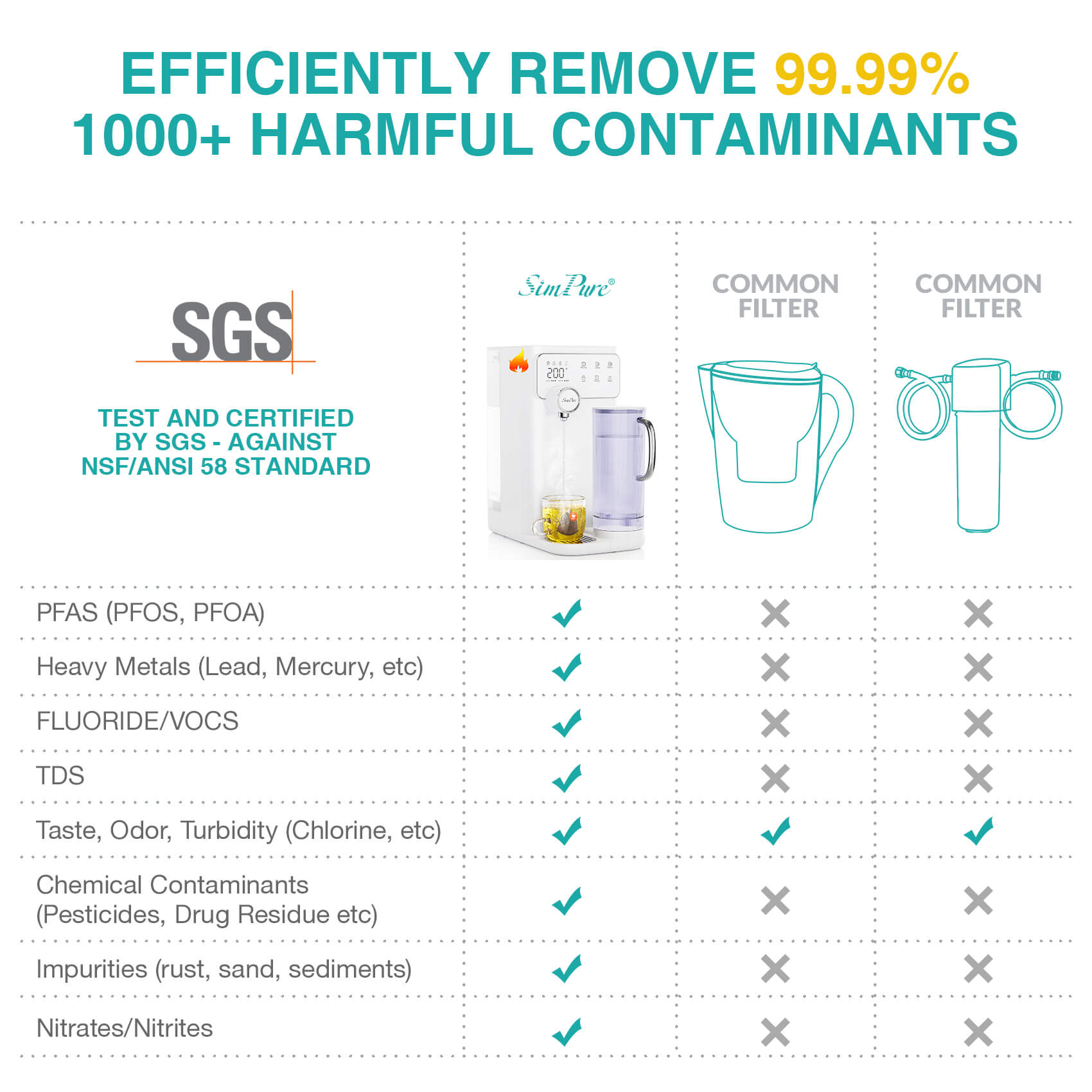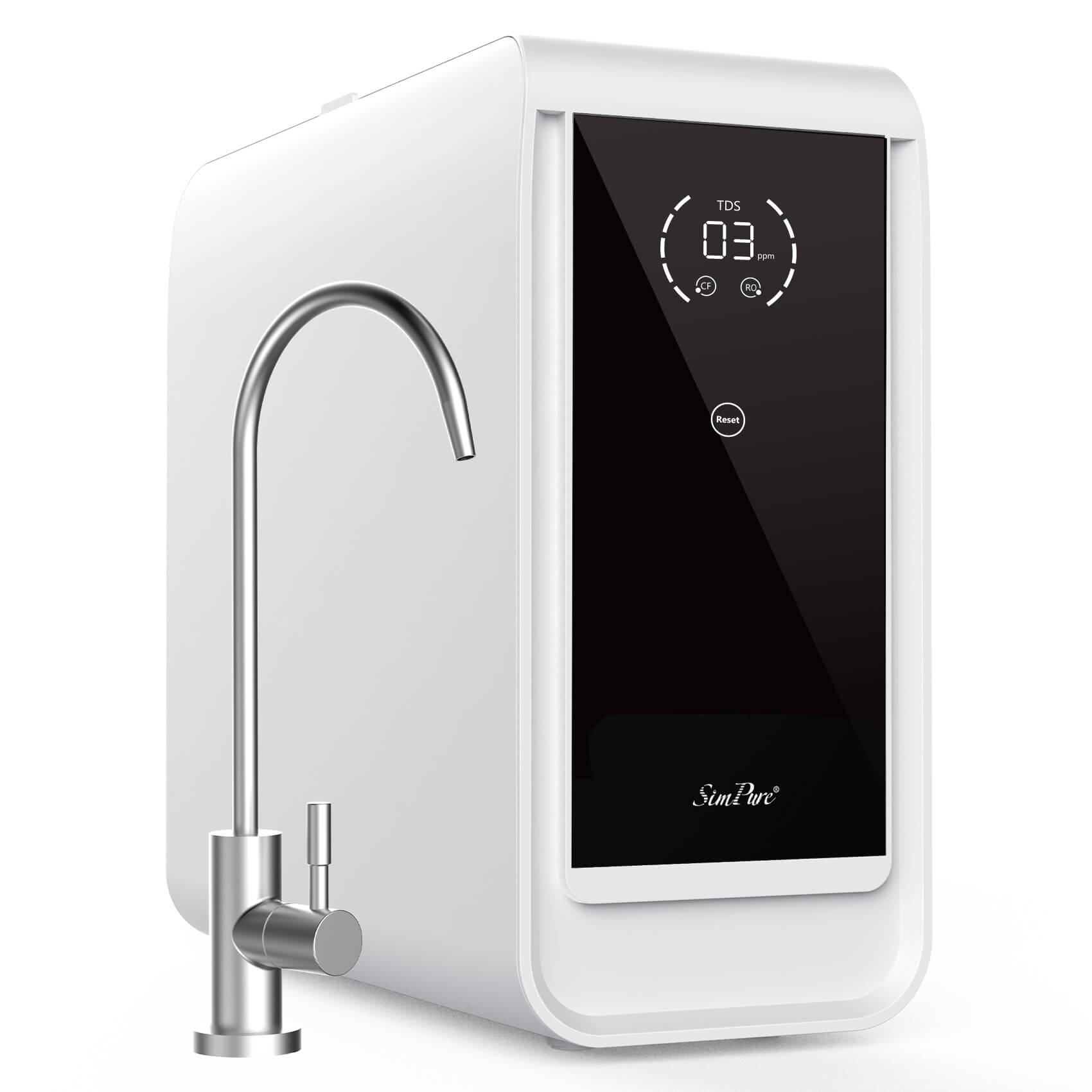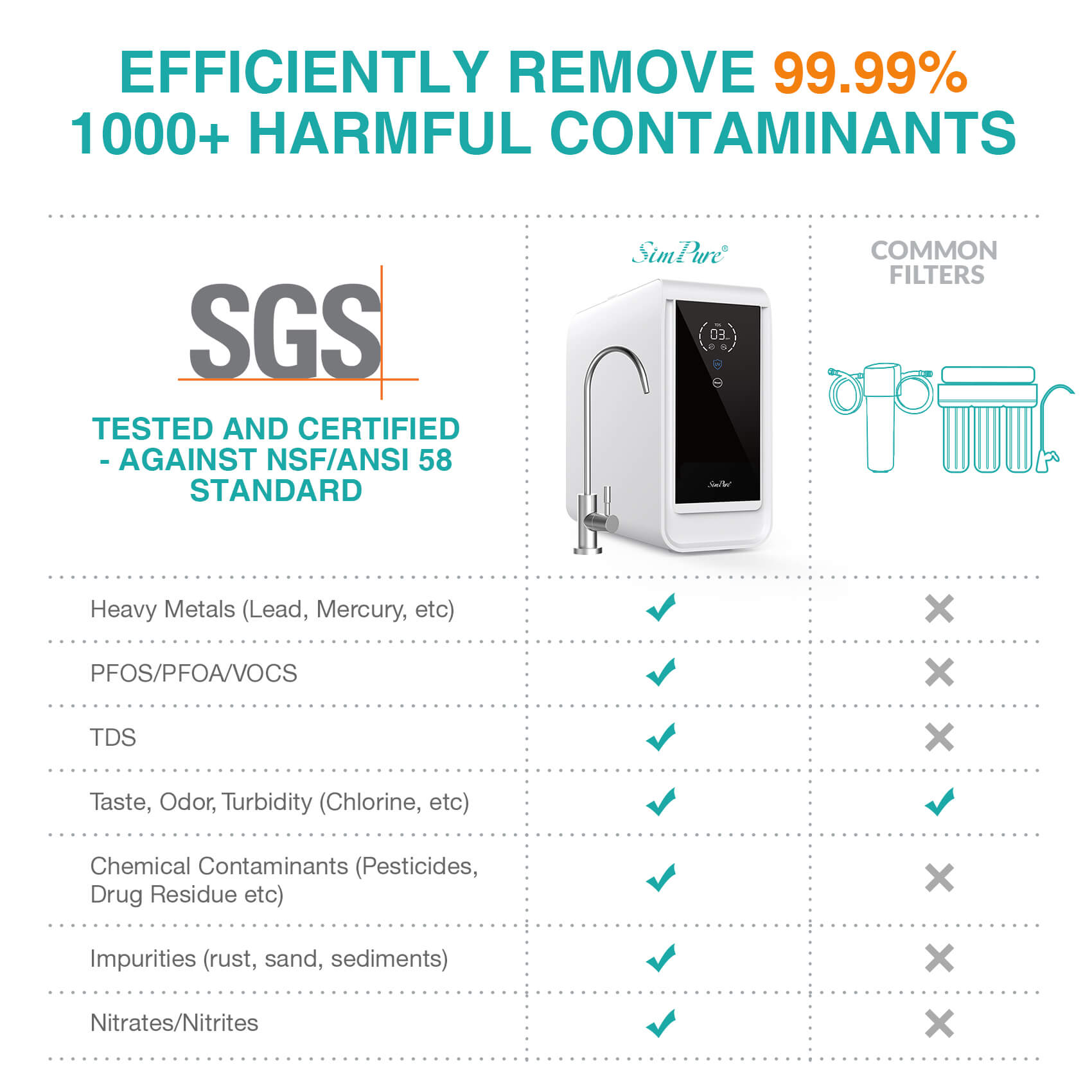Not all water sources are safe for consumption, as they may contain harmful contaminants such as bacteria, viruses, and other pathogens that can cause serious health issues. Using water filters that remove bacteria is a popular and effective solution to this problem. In this article, we will explore the different types of water filters that can remove bacteria, and their mechanisms of this action and recommend 4 kinds of water filters that can effectivlely remove bacteria to you.
Benefits of Using Water Filters that Remove Bacteria
A. Improved Health: using water filters to remove bacteria can provide numerous health benefits by eliminating harmful microorganisms and reducing the risk of waterborne diseases. By providing safe and clean drinking water, these filters can promote better health and well-being for individuals and communities.
B. Better Taste and Odor: In addition to improving health, installing water filters that aimed at removing bacteria can also enhance the taste and odor of our drinking water. These filters can remove chlorine, sediment, and other impurities that can affect the taste and odor of water, resulting in a better overall drinking experience.
C. Convenience and Cost-Effective: By installing water filters that are effective at removing bacteria is also convenient and cost-effective. Rather than relying on expensive bottled water or other purification methods, these filters provide an efficient and affordable way to ensure clean drinking water. Additionally, many water filters are easy to install and require minimal maintenance, making them a hassle-free solution for households and businesses alike.
5 Types of Water Filters that Can Remove Bacteria
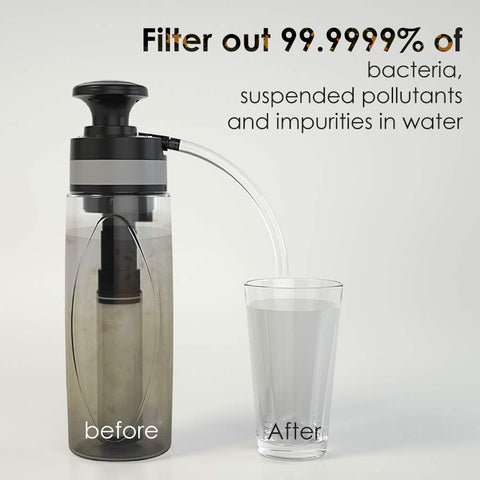
- 1. Carbon Filters
Carbon filters work by adsorption to remove impurities from water, including some types of bacteria. The effectiveness of carbon filters in removing bacteria depends on the pore size of the filter and the size of the bacteria. While most carbon filters have a pore size of 0.5 to 50 microns, which is not small enough to remove most bacteria, some carbon filters are treated with silver to make them more effective. A silver-treated carbon filter can remove bacteria such as E. coli, which is about 0.5 to 1 micron in size. A 5-micron carbon filter may not be effective in removing most types of bacteria from water as the majority of bacteria are smaller than 5 microns in size. However, other types of water filters, such as reverse osmosis or ceramic filters, may be more effective in removing a wider range of bacteria and other contaminants from water.
- 2. Reverse Osmosis Filters
Reverse osmosis (RO) filters use a semi-permeable membrane to remove impurities from water, including bacteria. During the RO process, water is forced through the membrane, which has microscopic pores that are typically 0.0001 microns in size. This is small enough to remove most types of bacteria and other contaminants from the water.
Reverse osmosis filters are effective in removing a wide range of bacteria, including E. coli, Salmonella, and Campylobacter. Check the detail info in this blog: does reverse osmosis remove bacteria? These bacteria range in size from approximately 0.5 to 5 microns, which are well within the range of particles that can be removed by an RO filter. In addition to removing bacteria, RO filters can also remove other contaminants such as viruses, heavy metals, and minerals. As you can see, RO system water filters are the best recommended water filters that remove bacteria.
- 3. Ultraviolet Filters
Ultraviolet (UV) filters work by using high-energy UV light to destroy bacteria and other microorganisms in water. This is accomplished by damaging the DNA of the bacteria, which renders them unable to reproduce and causes them to die. The most effective wavelength of UV light for killing bacteria is approximately 254 nanometers. Unlike physical filtration methods such as carbon or reverse osmosis, UV filters do not have a specific micron rating, as they do not physically remove particles from the water. However, UV filters are highly effective at destroying a wide range of bacteria, including E. coli, Salmonella, and other harmful pathogens. So, UV light is also considered to be one of the best water filters that remove bacteria.
- 4. Ceramic Filters
Ceramic filters work by using tiny pores in the ceramic material to physically block bacteria and other contaminants from passing through. The size of the pores in ceramic filters can vary but typically range from 0.2 to 0.5 microns in diameter. This means that ceramic filters are effective at removing bacteria such as E. coli, Salmonella, and other harmful pathogens, as well as other contaminants such as sediment, rust, and other particles.
Ceramic filters are particularly useful in areas where the water is turbid or cloudy, as they can effectively remove particles that can interfere with other filtration methods. However, it's important to note that ceramic filters may not be effective at removing certain chemicals or dissolved contaminants from the water.
- 5. Ion Exchange Filters
Ion exchange filters work by exchanging ions in the water with ions in the filter media, effectively removing dissolved contaminants such as heavy metals, fluoride, and other chemicals. While ion exchange filters are not typically used as the primary means of removing bacteria from water, they can be effective at removing certain types of bacteria that are positively charged, such as iron bacteria.
Ion exchange filters do not have a specific micron rating, as they do not physically remove particles from the water. Instead, they work by exchanging ions at the molecular level. However, they can be effective at removing certain contaminants that can contribute to bacterial growth, such as nutrients like nitrogen and phosphorus.
Microns of the 10 Common Bacteria in Water

Water filters that are designed to remove bacteria typically have a pore size of 0.1 microns or smaller. Filters with this small pore size can effectively remove bacteria, as well as other contaminants such as viruses and protozoa. In this part, we will introduce the common bacteria's microns in water to furtherly help you choose water filters that remove bacteria which you want mostly.
The size of bacteria in water can vary widely, but here are some of the most common types of bacteria found in water and their approximate sizes:
- Escherichia coli (E. coli) - 0.5 to 1.0 microns
- Salmonella - 0.7 to 1.5 microns
- Shigella - 0.5 to 0.8 microns
- Campylobacter - 0.2 to 0.8 microns
- Legionella - 0.5 to 0.9 microns
- Vibrio cholerae - 0.3 to 0.6 microns
- Pseudomonas aeruginosa - 0.5 to 1.0 microns
- Klebsiella pneumonia - 0.5 to 0.8 microns
- Enterococcus faecalis - 0.5 to 1.0 microns
- Staphylococcus aureus - 0.5 to 1.0 microns
4 Highly Effective Water Filters for Bacteria Removal: Countertop & Under Sink Style
If you are looking for an efficient way to eliminate these bacteria above from your water supply, reverse osmosis (RO) systems are a great option to consider. In this section, we will introduce you to the four best water filters that remove bacteria, all of which come equipped with a reverse osmosis system. These filters have become increasingly popular among households and businesses due to their effectiveness and affordability. Check the countertop and under-sink style RO system water filters that remove bacteria!
Counter Top Water Filters that Remove Chemicals and Bacteria
1. SimPure Y7P
The SimPure Y7P-BW UV RO countertop water filter is an excellent choice for those who want to ensure that their drinking water is free of bacteria (2 colors for your selection). This countertop RO reverse osmosis drinking water filtration system is equipped with a 3-Stages 0.0001μm RO filtration system and UV light, making it a highly effective option for removing bacteria and other contaminants from tap or well water. With its upgraded 100GPD RO membrane technology, these Counter Top RO Water Filters can effectively reduce a wide range of contaminants, including chlorine, lead, fluoride, chromium, and more. Additionally, it complies with GB/T 5750.4-2006 and EPA 537 standards and meets NSF/ANSI 58 standards. which you can check in its SGS Test Report.
Under Sink Water Filters that Remove Bacteria and Lead
2. SimPure T1-400 UV
The SimPure T1-400 UV Under Sink tankless RO water filter system is a highly recommended choice for those looking to remove bacteria from their drinking water. With its multiple purification process, including a 5-stage under-sink tankless reverse osmosis system equipped with PP+CTO+T33+RO+UV filtration, it can remove up to 99.99% of harmful microorganisms, viruses, and bacteria. This tankless RO+UV water filter system is also highly efficient in removing other contaminants such as heavy metals, fluoride, and pharmaceuticals. Its special reverse osmosis membrane and high-precision water pressure gauge make it an upgraded and efficient choice compared to other under-sink reverse osmosis systems.
3. SimPure T1-6
SimPure T1-6 is a 6-stage under sink alkaline water filter that removes up to 99% of over 1,000 harmful contaminants including lead and bacteria. The alkaline filter adjusts the pH to 7.5-9 and adds back essential minerals like calcium, potassium, and magnesium for great-tasting natural water. The system fits most under sinks and has a 3.2-gallon pressure tank for on-demand use. Made from US304 stainless steel and lead-free brass body material, it's durable and rust-free.
4. SimPure T1-5
SimPure T1-5 5 stage reverse osmosis water filter system effectively removes up to 99% of contaminants, including bacteria, chlorine, odor, and VOCs. Its advanced technology filters water down to 0.0001 microns, providing clean, pure, and healthy drinking water. The system is easy to maintain, with quick and easy filter replacement without disassembling the unit. It is a non-electric design and comes with everything needed for installation. The under-sink reverse osmosis filter has a smart design made from US304 stainless steel and lead-free brass material, ensuring purified water is free from rust and other contaminants.
In conclusion, installing water filters that remove bacteria is an essential tool for ensuring clean and safe drinking water. While there are several types of water filters that can effectively remove bacteria, reverse osmosis systems are considered the best option due to their comprehensive filtration capabilities and ability to remove up to 99% of bacteria and other contaminants from water. If you're looking for a reliable and effective water filter to remove bacteria from your drinking water, consider investing in a reverse osmosis system like SimPure Y7P today!

